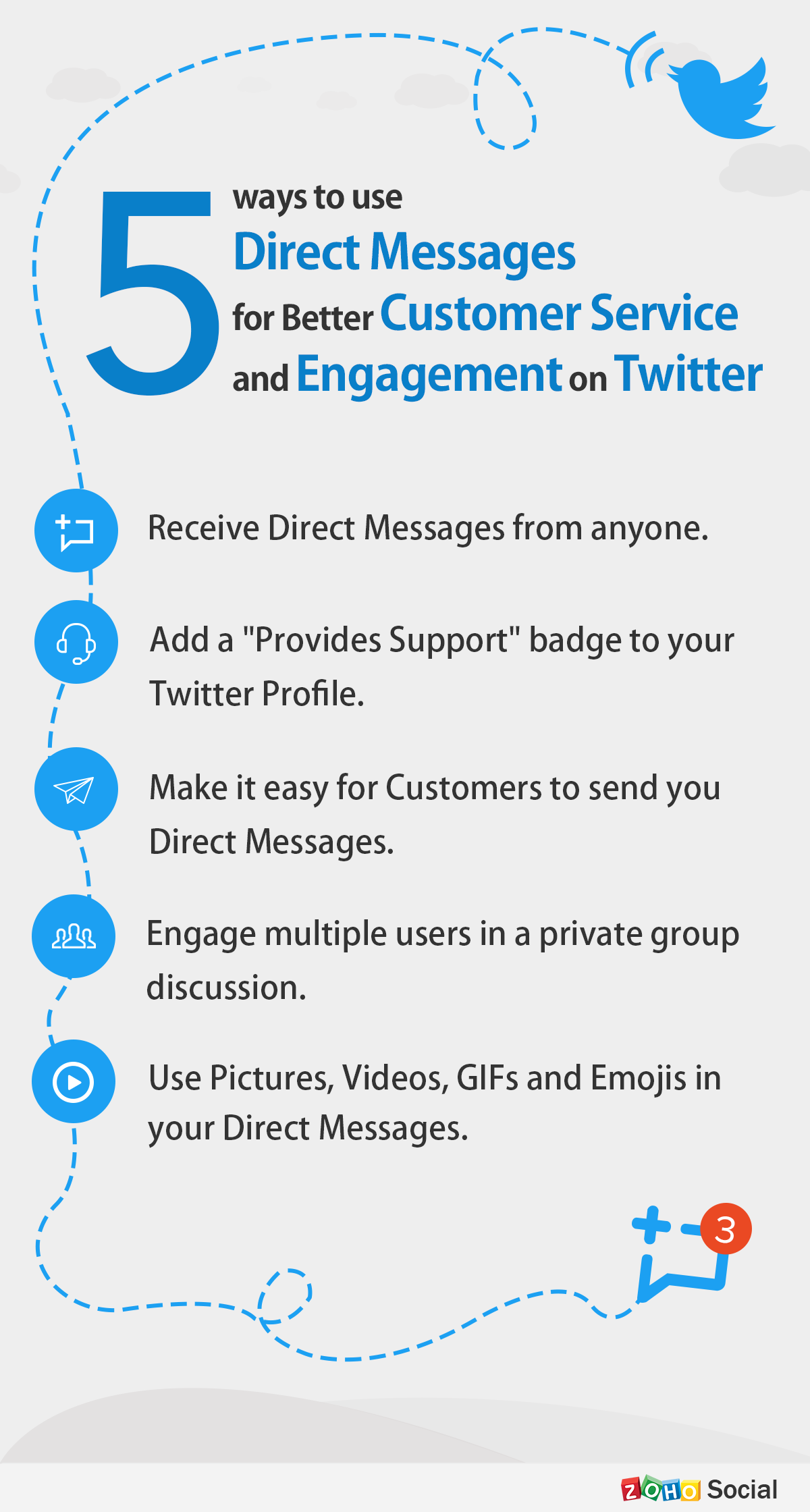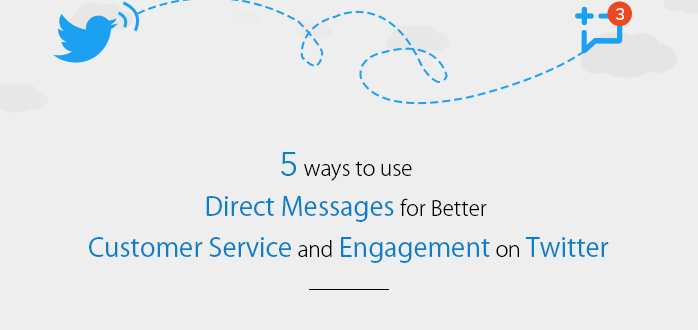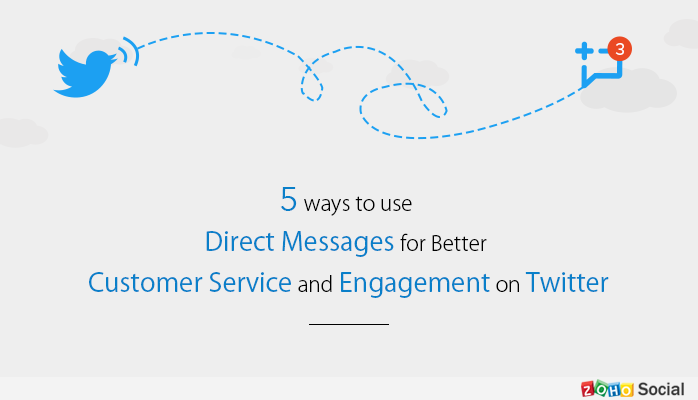Over the last couple of years, Twitter has been working on making the Direct Message experience richer for users. Earlier this month, they announced the ability to see read-receipts and typing indicators for Direct Messages. The Direct Message feature now offers many ways for brands using Twitter to engage with their audience.
#1 Receive Direct Messages from anyone.
You no longer have to follow users just so they can send your brand a Direct Message over Twitter. Just head to your Twitter Settings and check the “Receive Direct Messages from anyone” option found under the “Security and Privacy” Settings. A word of caution, though: since you’re a brand, this could mean a flurry of Direct Messages from multiple users, so be prepared to reply to these before you switch to this mode.
#2 Add a “Provides Support” badge to your Twitter Profile.
Last week, Twitter announced a new setting for businesses that offer support on Twitter – this setting lets brands display a “Provides support” label on their Twitter profiles. Brands can specify their support hours during which they’re likely to be most responsive. This setting also places a prominent “Message” button to make it easier for customers to send messages to the brand. With this move, Twitter’s made it clear that Direct Messages play a huge role in customer support on social media. Since they do not come with a 140 character limit like Tweets do, Direct Messages also have the added advantage of letting you hold a conversation without having to skimp on words. So if your brand already offers customer support on Twitter, go ahead and flaunt it on your profile with this setting.
#3 Make it easy for Customers to send you Direct Messages.
While many people use Twitter to seek customer support from brands, some of them are not so familiar with how Direct Messages work. As a brand, you would naturally want to transition some of your public support discussions on Twitter to Direct Messages so you can resolve these in a private conversation space. But here’s what happens:
*Customer tweets to Brand x stating a problem or requesting support*
Brand x: Please send us a DM with your customer ID and order number (or some such detail)
Customer: What’s a DM?
Since it’s quite likely that the customer reached out to you with a problem and is already frustrated, this might not be the best time to explain to them what a DM is and how it works.
To avoid awkward situations like these, Twitter came up with a handy little feature that lets brands embed a Direct Message link within tweets. When your brand includes this link within a tweet, all that your customers have to do is click the link to open up a Direct Message conversation with you.
#4 Engage multiple users in a private group discussion.
Did you know that you can actually have a group conversation with multiple Twitter users within a Direct Message? This is a great feature for times when you want to engage multiple customers by letting them all participate in a discussion.
Group DMs could be ideal for situations like these:
- You have an interesting product idea to bounce off and you only want to share it with a group of people who you think can give you the best feedback.
- You’re launching something new and exciting and you want to share with a select group of customers before you break the news to everyone else.
You want to create a group of beta users who’ll have access to one of your products and provide ongoing feedback.
However, not everyone likes being a part of a group discussion, unless they see real value in exchange for the time they spend participating. Before adding anyone to a group, it’s always good practice to seek their permission separately. Even if they say no, they’ll value the fact that you asked.
#5 Use Pictures, Videos, GIFs and Emojis in your Direct Messages.
All the rich media that can be shared within tweets can also be shared over DM. So, you don’t have to be limited to text-only content within your Direct Messages. This feature, coupled with their no-character limit, makes Direct Messages an ideal medium to have one-on-one conversations with your customers and prospects.
How is your brand using the Direct Messages feature? We’d love to hear any ideas you have. Share your thoughts by leaving me a comment, or even better – send me a DM about it ?


